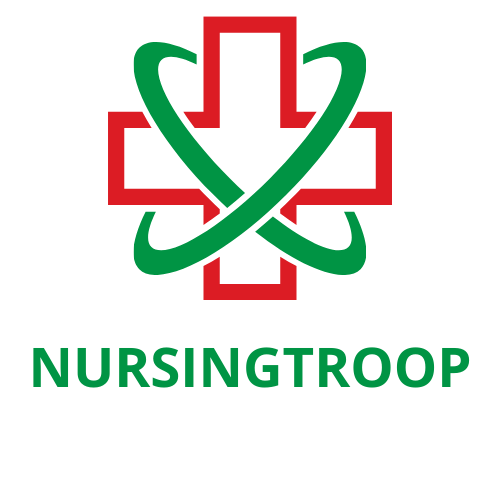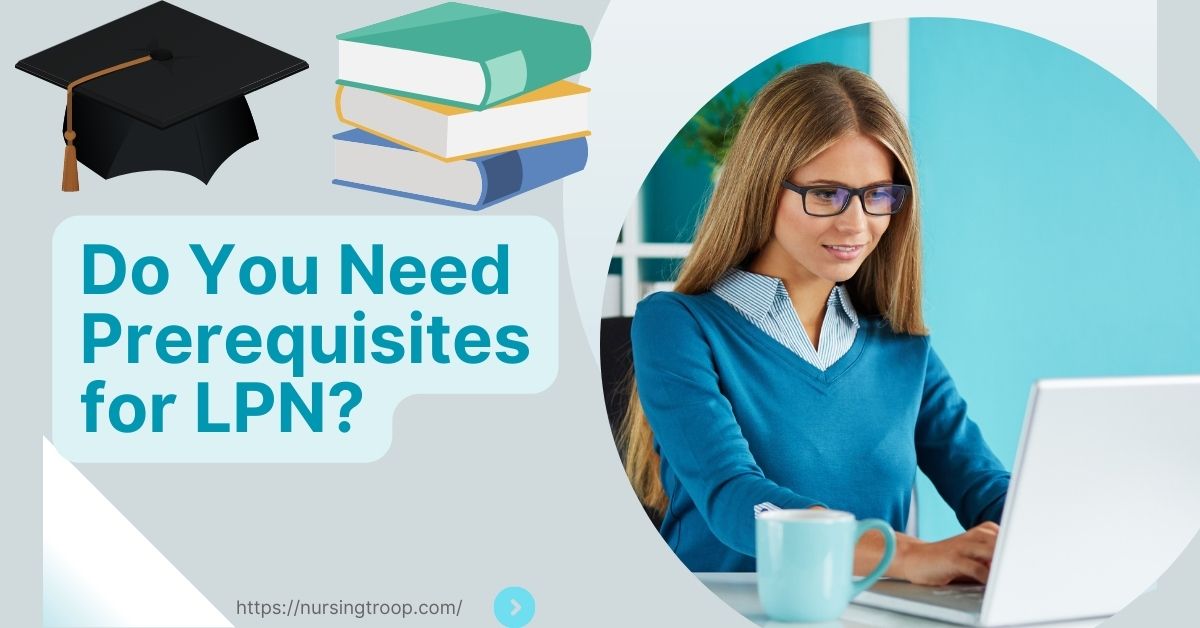Are you considering a career as an LPN (Licensed Practical Nurse)? It’s a great choice for many reasons – the job outlook is excellent, salaries remain competitive throughout the country, and there’s plenty of room for personalized growth in the field. But first, you’ll need to ensure your qualifications meet the requirements to enter LPN school.
This post will examine what prerequisites are necessary before enrolling in an accredited LPN program and how those academic standards may differ from state to state.
Whether you’re just beginning or considering a future as an LPN, this guide should provide all the essential information about admission requirements and expectations. Let’s dive in.
Table of Contents
Prerequisites for LPN School: Qualification & Experience
Qualification
Suppose you are considering a career in nursing and are interested in becoming a Licensed Practical Nurse (LPN). In that case, knowing the qualification requirements for LPN school is essential.
1. Generally, to qualify for LPN school, you must have a high school diploma or GED equivalent and a minimum GPA of 2.5.
2. And Complete prerequisite courses, Which may vary from school to school to supervised clinical practice in patient care—typically cover the following:
Experience
Some LPN programs require an entrance exam, background check, and healthcare-related work experience. It is crucial to research and understand the specific requirements of the LPN program you are interested in to ensure you meet all qualifications and increase your chances of being accepted into the program. These requirements vary depending on the school and include courses.
LPN Prerequisites: Program Coursework
- Biology
- First aid
- Chemistry
- Physical education
- Anatomy
- Foods and Nutrition
- Psychology
- Child growth and development
- Emergency medical technology
The above LPN programs courses are conducted in various places such as:
- Classroom
- Skill-building laboratories
- Hands-on clinical practice.
Clinical practice activities are usually conducted in a hospital setting under the direct supervision of licensed medical professionals. Required coursework typically includes:
- Medical surgical nursing
- Geriatric nursing practice
- Maternal and child nursing
- Pharmacology
- Mental health nursing
Let’s briefly understand what you will learn in these programs:
Biology
Biology is an essential foundational course for LPNs, as it covers the structure and function of living organisms. This includes topics like cell biology, genetics, and evolution that are necessary to understand to care for patients properly. First aid courses equip you with essential knowledge about providing medical assistance during emergencies, while chemistry helps you know how medicines interact with the body.
First aid
First aid training is essential for any medical professional. This class teaches you how to administer CPR, use an automated external defibrillator (AED), and provide necessary first-aid treatments in a medical emergency. Practice as much as possible to be prepared for a real-life situation!
Chemistry
If you’re not a fan of math, this course may be challenging for you. However, it can become much more manageable if you take the time to understand the material and practice regularly. This class teaches about atoms, molecules, elements, periodic tables, and balancing equations.
Physical Education
Physical education is a great way to stay active and in shape! This class teaches you about different physical activities like running, swimming, weight training, and yoga. This class will also cover health topics like nutrition and exercise safety. It’s essential to make time for regular physical activity to stay healthy.
Anatomy
You will study the structure of living organisms. This class teaches you about the human body systems, including skeletal, muscular, circulatory, respiratory, digestive, and reproductive systems. There will be many diagrams, so taking good notes is essential.
Foods & Nutrition
Foods & Nutrition is an excellent class for any aspiring medical professional. In this course, you will learn about food groups and how to make healthy choices. You will also learn the importance of vitamin and mineral intake, portion control, and meal planning. It’s crucial to stay on top of your work to understand the essential concepts presented in this class.
Psychology
It is the study of behavior and mental processes. This class teaches you about cognitive psychology, abnormal psychology, developmental psychology, the biological basis of conduct, etc. This class will provide valuable insight into how people think and act, so paying attention during lectures is essential.
Child Growth and Development
This course covers children’s physical, emotional, and cognitive development from birth through adolescence. You will learn about various stages of child development, how to recognize signs of child abuse or neglect, and how to work with children in a caring and effective manner. Make sure to keep up with reading assignments and ask questions so you can better understand the content material.
Emergency Medical Technology
This class covers various topics related to emergency medical care, such as patient assessment and treatment. In this course, you will also learn about the use of medical equipment and the different techniques used in emergencies. Practicing regularly to become familiar with these concepts and confidently applying them to real-life situations is essential.
Clinical Practice Activities Course Coverage:
Medical surgical nursing
This course is designed to teach the fundamentals of medical-surgical nursing. It provides an overview of diagnosing and treating common medical conditions, such as infections, respiratory disorders, cardiovascular diseases, diabetes, gastrointestinal problems, and genitourinary issues.
This class also covers the importance of patient education and personal protective equipment (PPE).
Also, to assess a patient’s condition accurately by taking vital signs and performing physical exams. Pay close attention during lectures and practice regularly to be well-prepared for any medical situation!
Geriatric nursing practice
Geriatric nursing practice focuses on caring for elderly patients in both hospital and community settings. This course covers various topics, such as recognizing signs of aging, assessing a patient’s physical condition, and providing emotional support.
You will also learn about common medical issues with age, including dementia, arthritis, and nutritional deficiencies. Paying attention during lectures and practicing regularly is essential to manage any gerontological care situation confidently!
Biochemistry
Biochemistry is an essential part of any health-related field. This course will teach you about protein synthesis, metabolic pathways, hormones, enzymes, and other biochemical processes.
Students will also study about biomolecules’ structure–function relationships, such as DNA, RNA, carbohydrates, lipids, and proteins. Pay attention to detail during lectures and practice regularly to understand the essential concepts taught in this class.
Pathophysiology
Pathophysiology is a course that focuses on changes in various body systems due to illness or injury. This class teaches you about different diseases and disorders and how they affect multiple organs and body systems.
Understanding these processes is essential for any medical professional since it allows them to diagnose a patient accurately and provide effective treatments. Take good notes and ask questions during lectures to better understand the content material.
Mental health nursing
Mental health nursing is an important and growing field focusing on providing quality care to mental health patients. In this course, you will learn about the different types of mental health issues, how to accurately assess a patient’s condition and the importance of respecting patient autonomy.
Students will also understand various treatment plans and techniques for managing mental health disorders. Pay attention during lectures to gain insight into how people think and act to provide adequate services.
This course provides an overview of ethical principles in healthcare and legal considerations such as informed consent. You’ll gain an understanding of the major theories related to bioethics, such as utilitarianism, deontology, biomedical ethics, and environmental justice.
So, these prerequisites for the LPN program will ensure you have the knowledge and skills to care for patients properly. Make sure you take time to thoroughly learn and understand the material presented in your prerequisite classes, as this will be essential to success in the LPN program.
Final Thoughts
The LPN pre-req classes ensure you have the skills to care for patients properly. These courses will provide a foundation of knowledge and prepare you with the practical experience needed to succeed at your job as an LPN. Be sure to take the time to understand the material presented in your prerequisite classes and practice regularly to become an effective and confident professional.
Remember, the more effort you put into these courses now, the better off you will be in the long run. With determination and dedication, there’s no doubt that you’ll be successful in your LPN program. If you have any questions or need help along the way, don’t hesitate to reach out and ask. We’re here to help you succeed.
Mrs. Marie Brown has been a registered nurse for over 25 years. She began her nursing career at a Level I Trauma Center in downtown Chicago, Illinois. There she worked in the Emergency Department and on the Surgical Intensive Care Unit. After several years, she moved to the Midwest and continued her nursing career in a critical care setting. For the last 10 years of her nursing career, Mrs. Brown worked as a flight nurse with an air ambulance service. During this time, she cared for patients throughout the United States.

